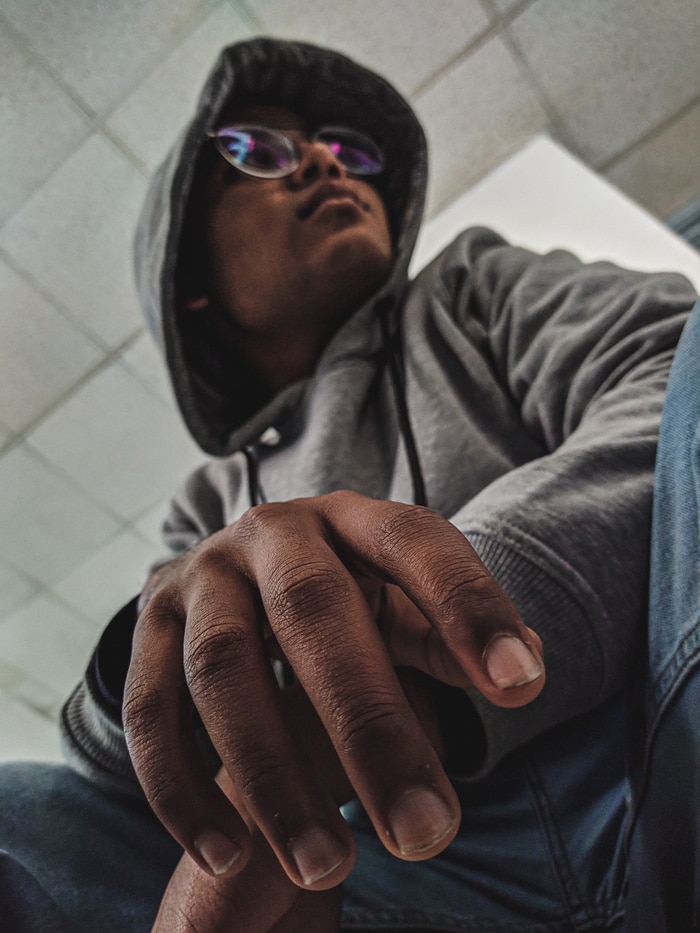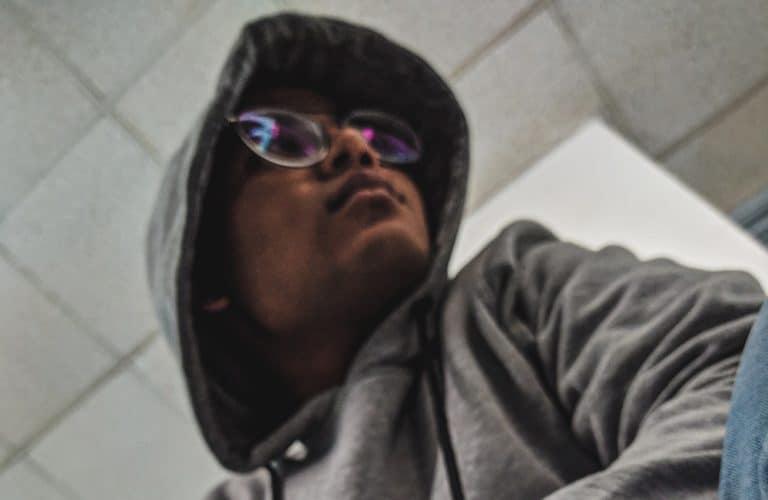7 statistics that show why gen Z might be the one to end systemic racism
For a few years now, many have described the generation Z as sensitive, lazy and addicted to social media. While some of it is most definitely true, we’ve recently started seeing gen Z as the one that will change things. Now, as the Black Lives Matter movement carries on protesting in the US as well as in the rest of the world, we wonder if gen Z could actually be the generation that tackles systemic racism.
To answer this, we asked the gen Z live platform Yubo to share a few of our questions with its users. The poll was conducted between 9 June and 15 June and had Yubo survey over 13,000 people aged 13 to 25 years old in the UK. This allowed Screen Shot to get gen Zers’ opinion on the movement of protest that followed George Floyd’s murder in the US.
From the poll’s results, 7 statistics stood out as clear signs that gen Z could well be the generation of change.
In the UK, 4 out of 5 gen Zers believe that black people are treated differently
In order to achieve any kind of change, we need to accept that there is something wrong in the first place. That’s why we asked Yubo’s gen Zers residing in the UK whether they felt like black people were treated differently than white people. In other words, we wanted to see if they could admit the existence of white privilege.
In response, 4 out of 5 gen Zers said they believe that black people are treated differently, compared to only 2 out of 3 of their parents sharing the same belief. For many, denying white privilege comes from misunderstanding the concept.
Not fully grasping how society privileges white individuals has led many to believe that black people who have suffered from police brutality somehow deserved the blame. In comparison, the new generation has been helped by social media and the internet in understanding where white privilege comes from and how exactly it benefits certain people.
In the UK, 4 out of 5 gen Zers believe that peaceful protests are necessary to facilitate change
While certain news outlets have made it their mission to depict the many protests that followed George Floyd’s murder as violent, many protesters have testified against these statements. We’ve discovered that, in the UK, 4 out of 5 gen Zers believe that peaceful protests are necessary to facilitate change, confirming that most new gens intend to protest peacefully and not violently. Half of their parents hold the same belief.
Despite 4 out of 5 gen Zers Brits never attending a protest, over half would be willing to be arrested for attending a peaceful protest
With the current movement still going strong, we’ve seen the protesters’ resilience and willingness to sacrifice their time and energy in a cause that is more than worth it. Despite the risk of getting arrested by the police, new gens have admitted they would be prepared to take that risk in order to make their voice heard.

4 out of 5 gen Zers believe that more needs to be done in the US while 2 out of 3 believe that more needs to be done in the UK
While previous generations have been quick to point the finger at the US, as we’ve seen Newsnight’s Emily Maitlis do last week in an interview with George the Poet, gen Z is also calling out the UK and other countries as being responsible for systemic racism, too. Ignoring the UK’s denial of its own racism is as disingenuous as ignoring the US’ police brutality and racism, and doing so only further perpetuates white privilege in the UK.
These statistics portray gen Zers as strong protesters who are aware of systemic issues as well as willing to take action. But admitting and fighting these don’t come without its toll on new gen’s mental and physical wellbeing.
In the UK, 3 out of 4 gen Zers are concerned about health issues at the protests
In the midst of the COVID-19 pandemic, the fight against racism and injustice couldn’t wait. While staying home as much as possible is still strongly recommended by governments, protesters have had to make do with their best tool in order to make their voices heard: protesting.
Just yesterday, police officers in London urged Priti Patel to impose an emergency ban on all protests during the coronavirus pandemic, warning officers were being put at risk by a wave of mass demonstrations. Although wearing masks, gloves, and keeping a two meters distance from other protesters are the best ways to avoid risk of getting COVID-19, many protesters are still concerned about their health. The situation, however, has not discouraged the Black Lives Matter movement from fighting back.
1 out of 3 gen Zers said their mental health has been impacted by the surge of online images and videos of the protests
Protesting has never been easy. But now, more than ever, with the constant flow of graphic and harmful content our brains receive through social media platforms, we find ourselves on edge frequently. This has had an impact on gen Z’s mental health. As an activist, looking after your mental health is a necessary step in the fight against systemic racism.
1 in 2 British gen Zers feel overwhelmed by the information coming from the #BlackLivesMovement on how to take action
This statistic highlights how much more effort we need to make as a generation. Protests must carry on, yes, but we also need to provide more information to anyone that might feel the need to research how to take action. Only by doing so will we start tackling systemic racism.
These protests are made of passionate, non-violent young leaders fighting for a brighter future. Those who previously criticised the new generation for being too connected, too woke or even too sensitive will be compelled to reconsider their stance soon enough.






